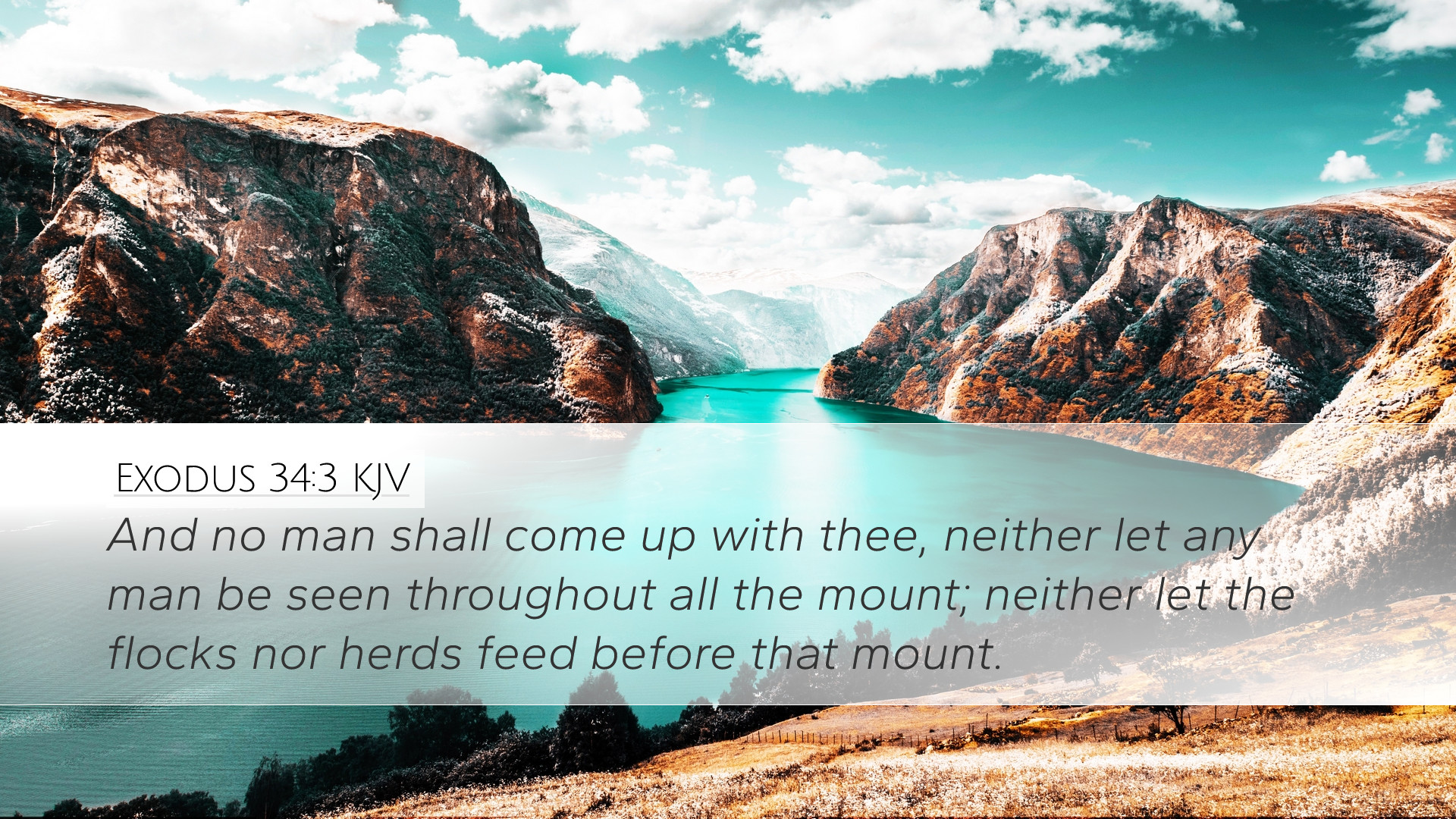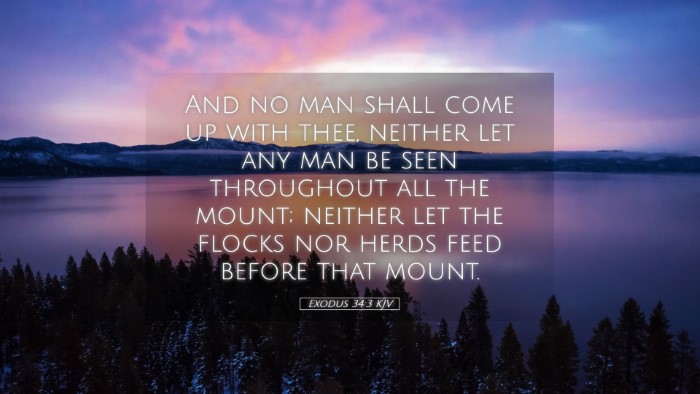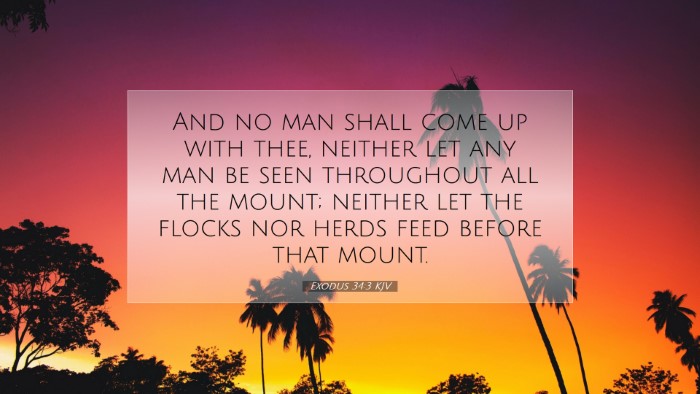Commentary on Exodus 34:3
Verse: "No one shall come up with you, nor let any man be seen throughout all the mountain; neither let the flocks nor herds feed before that mountain." (Exodus 34:3)
Contextual Background
This verse occurs in the context of God's covenant renewal with Israel after their sin with the golden calf. Moses ascends Mount Sinai to receive the commandments anew. God's previous affirmations concerning His covenant relationship and His grace towards Israel are fundamental to understanding this passage.
Exegesis and Interpretation
The command given here, emphasizing that no one is to approach the mountain, serves to underline the holiness of God. It reflects the seriousness with which God regards His presence and the need for reverence when approaching Him. The exclusivity of the command points to the separation that exists between a holy God and a sinful people.
Insights from Public Domain Commentators
-
Matthew Henry:
Henry draws attention to the importance of separation and holiness in this passage. He notes that this command illustrates how God's presence is not to be trifled with. The exclusion of the people from approaching the mountain signifies the sacredness of the ground and the danger inherent in entering God's presence without due reverence and preparation.
-
Albert Barnes:
Barnes emphasizes the idea of preparation for communion with God. He explains that the restrictions imposed were meant to instill a sense of awe and gravity about God's holiness. This illustrates God's covenantal relationship with Israel, where both reverence and obedience are required to maintain fellowship.
-
Adam Clarke:
Clarke connects this passage to the broader theme of God's covenant with Israel. He comments on the significance of the exclusivity that God enforces at Sinai, noting that it reflects a divine order in worship. He underscores the importance of recognizing God's majesty, as the mountain symbolizes the direct encounter with divine authority.
Theological Reflections
The restrictions imposed in this verse provide a rich ground for theological exploration. They highlight God's transcendence and the need for holiness among His people. This necessity for separation also carries forward into New Testament teachings, where believers are called to approach God with humility and reverence through Christ.
Key Themes:
- Holiness of God: The command in Exodus 34:3 reinforces the understanding that God is wholly other and deserves utmost respect and distinct separation.
- Human Limitations: The inability of the people, including Moses, to approach God without explicit divine instruction illustrates the need for mediation. This prefigures Christ's role as the ultimate mediator.
- Reverence in Worship: The restrictions serve as a call to understand worship's serious nature, revealing that true worship involves recognizing God's holiness and our own sinfulness.
Application for Today's Believers
The implications of this verse extend into the lives of contemporary believers. It challenges modern worship practices and encourages a deep appreciation for the holiness of God. As pastors, theologians, and students of Scripture, it is essential to stress the importance of approaching God with proper reverence and an understanding of His requirements for worship.
Practical Considerations:
- Preparation for Worship: Just as the Israelites were instructed to prepare themselves, believers today must approach worship thoughtfully, ensuring they are spiritually ready to engage with God.
- Understanding God's Holiness: Teaching congregations about God's holiness can enrich their worship experience, prompting a greater sense of awe and respect.
- Emphasizing Christ's Mediation: In light of Christ's work, believers are granted access to God, but this should lead to worship characterized by both joy and reverence.
Conclusion
Exodus 34:3 serves as a profound reminder of God's holiness and the need for reverence in our relationship with Him. The commentaries from Henry, Barnes, and Clarke enrich our understanding by placing this verse in the broader narrative of God's covenantal love, the importance of separation, and the call to recognize God's majestic holiness in our lives. Today, as we reflect on this passage, let it foster a deeper commitment to worship God in spirit and truth, with a heart that recognizes the sacredness of His presence.


